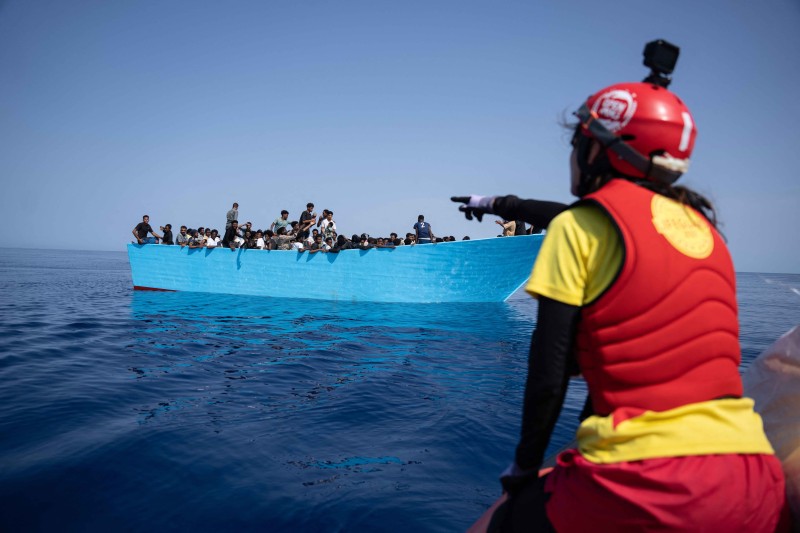Reported by
Arguments in the Netherlands’ largest-ever human trafficking case concluded Wednesday, with defense attorneys questioning the court’s jurisdiction over crimes that occurred mainly in other countries, arguing the prosecution over the matter rests on a “big misunderstanding.”
The defendant, 42-year-old Eritrean national Amanuel W., faces up to 20 years in prison on charges of human trafficking, hostage-taking, extortion, assault and sexual assault related to his alleged operation of a smuggling ring targeting migrants in Libya from 2014 to 2018.
“This concerns a case of smuggling from Eritrea via Sudan to Libya, ending in Italy,” defense lawyer Simcha Plas argued to a panel of judges in a district court in Zwolle, a city in the Netherlands’ northeast. “The smuggled victims were not smuggled to the Netherlands, but, as stated in the Prosecution’s indictment, to Italy.”
Amanuel W. — it is standard in Dutch court cases to identify the accused only by their last initial — was arrested in Ethiopia in 2020 and was sentenced to 18 years in prison in Addis Ababa, before being extradited to the Netherlands in late 2022.
The defense argues that Dutch prosecution is further misplaced because Amanuel W. has already been convicted of human trafficking in Ethiopia.
Plas told the court that she understood the “human reflex” to “punish serious abuse,” but that not every “distressing” event should lead to accountability in a Dutch court.
The prosecution, however, said there was a clear link to the Netherlands: residents of the country were extorted by his network, which held their relatives. In the Netherlands and elsewhere in Europe, “relatives, friends, and acquaintances are pressured to pay” and “witness their abuse live over the phone,” said prosecution spokesperson Brechtje van de Moosdijk.
“They are forced to pay in the Netherlands for their family members' onward journey to this country through informal cash transfers, which are subsequently transferred to the smugglers via hawala banking,” van de Moosdijk told OCCRP.
Hawala is an informal, trust-based system that uses a network of non-bank brokers called “hawaladars” to transfer money between locations without the physical movement of cash or a paper trail.
“The criminal organization's business model is also directly linked to the systematic abuse in the Libyan camps. After all: no smuggling without payments, no payments without extortion, no extortion without the use of violence,” van Moosdijk said.
During the trial, one witness recounted being extorted in Libya to the Dutch prosecutors: "When you're being beaten, even the sound of the whip is heard on the phone. You unconsciously start screaming. You'll say whatever they want. You tell your family, 'You have to pay for me, I'm being beaten, I'm struggling.' They hear the pain on the phone, too… They'll rush to collect the money.”
Amanuel W. is accused by the Dutch court of mainly committing crimes in Bani Walid, a city widely viewed as one of Libya’s main hubs for holding migrants and extracting ransoms from their families. One witness for the prosecution described being locked in a barn there with 1,600 to 1,700 migrants.
Six others are accused of crimes in connection to Amanuel W.’s smuggling network; one main suspect is awaiting extradition from the United Arab Emirates, and five more accused of financial involvement are scheduled to stand trial next year.
The court is scheduled to issue its verdict on January 26.






